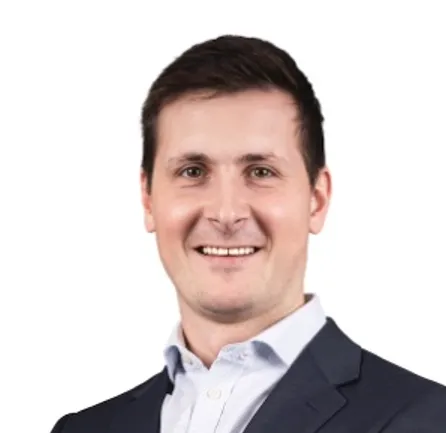
Conor Spicer
Solutions Engineer
OpenAI covering the MENA region
Conor Spicer is a Solutions Engineer at OpenAI covering the MENA region, working with governments, large enterprises, and education institutions to drive rapid adoption of AI at scale. He brings over a decade of experience across data, analytics, and machine learning, spanning the shift from traditional data platforms to modern generative and agentic systems. His focus is on helping organizations move quickly from access to impact, building AI literacy, embedding tools like ChatGPT into everyday workflows, and addressing the organizational, governance, and change challenges that come with widespread AI use.
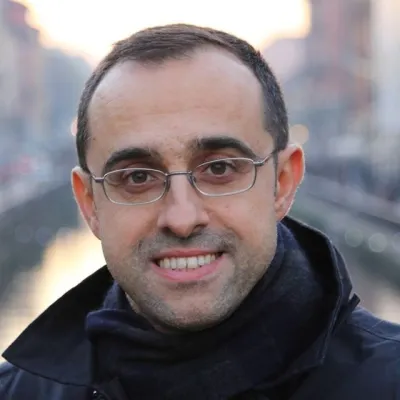
Dr. Danilo Ardagna
Associate Professor
Polytechnic University of Milan, Italy
Dr. Danilo Ardagnais an Associate Professor at the Department of Electronics, Information and Bioengineering of Politecnico di Milano, Italy, internationally recognized for his contributions to resource management in distributed computing systems with a strong focus on artificial intelligence, high-performance computing, and cloud/edge infrastructures. His research combines the design, prototyping, and performance evaluation of algorithms for large-scale systems with a particular emphasis on optimization methods such as Bayesian optimization and reinforcement learning, aiming to maximize quality of service and optimize resource allocation across the entire computing continuum, from edge and fog devices to cloud and HPC environments. Current interests include AI application deployment, performance analysis, energy efficiency, and model-driven management, with results that have been validated on industrial use cases and transferred into practice through open-source software and patents.
He received a PhD in Information Technology and an MSc in Computer Science Engineering from Politecnico di Milano, where he currently serves as Associate Professor. His experience includes research visits at the IBM T.J. Watson Research Center and the Basque Center for Applied Mathematics. Over his career, he has co-authored more than 150 peer-reviewed publications, including over 60 journal articles in leading IEEE and ACM venues. He has delivered numerous invited talks, received best paper awards, and has been consistently ranked among the world’s Top 2% most-cited scientists.
Danilo has coordinated or contributed as principal investigator to major European projects such as H2020 AI-SPRINT, DICE, ATMOSPHERE and EUBRA-BIGSEA, while collaborating with leading technology companies through grants and joint research initiatives with IBM, Microsoft, Google, and Amazon. His technology transfer activities have produced widely adopted open-source frameworks, alongside patents in AI systems and IT architectures. Beyond his scientific and industrial contributions, he has played key organizational and editorial roles, serving as General Chair for conferences such as IFIP WG 7.3 Performance, ACM SIGMETRICS, and the Fast Continuum series, and as Associate Editor for IEEE Transactions on Cloud Computing. He is member of the IFIP WG 7.3 on Computer System Modeling.
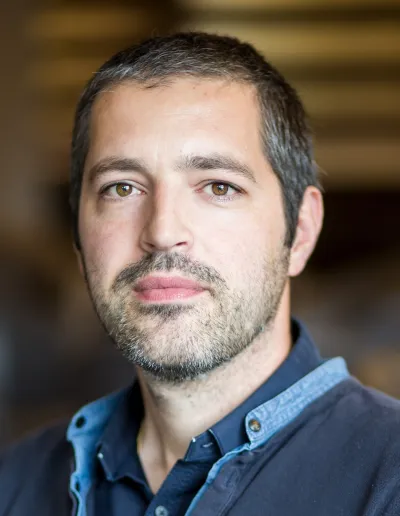
Prof. Jacques Klein
Chief Scientist (Full Prof.)
Co-head of the TruX Research Group
SnT Centre, University of Luxembourg
Dr. Jacques Klein is a full professor in software engineering and software security within the Interdisciplinary Centre for Security, Reliability and Trust (SnT) at the University of Luxembourg. Prof. Klein co-leads a team named TruX of about 35 researchers developing innovative approaches and tools for helping the research and practice communities build trustworthy and secure software. Prof. Klein received a Ph.D. degree in Computer Science from the University of Rennes, France, in 2006. His main areas of expertise are threefold: (1) Software Security, (2) Software Reliability, and (3) Intelligent Software. Prof. Klein received multiple most influential papers and has published over 250 papers, often in top venues such as ICSE, FSE, ASE, ISSTA, PLDI, AAAI, ACL, etc. In addition to academic achievements, Prof. Klein also has long-standing experience and expertise in successfully running industrial projects with several industrial partners in various domains by applying AI, software engineering, information retrieval, etc., to their research problems.
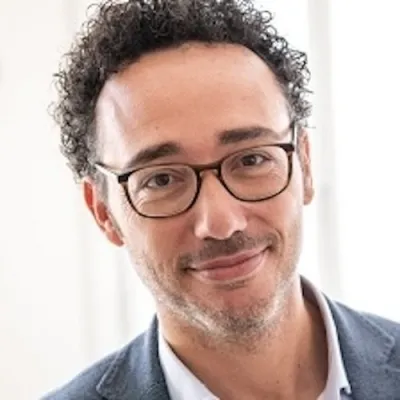
Dr. Walid Maalej
Professor
University of Hamburg, Hamburg, Germany
Walid Maalej is an award-winning software researcher, passionate mentor, and world citizen. As Professor of Informatics at the University of Hamburg, he teaches software development to up to 700 students in a single room, combining fun activities (such as paper planes and finger flicking) with pair-programming. His research interests include AI for Software Engineering, Software Engineering for AI, Requirements Engineering, Human Aspects, and Tech Transfer. His work has received four Most Influential Paper Awards, has been cited, a.o., by the UK and US Governments, and has been adopted by multiple large companies, including Siemens and SAP. He once learned, as head of department, how to "navigate a big ship through turbulent waters," including pandemic management and an exceptional budget cut.
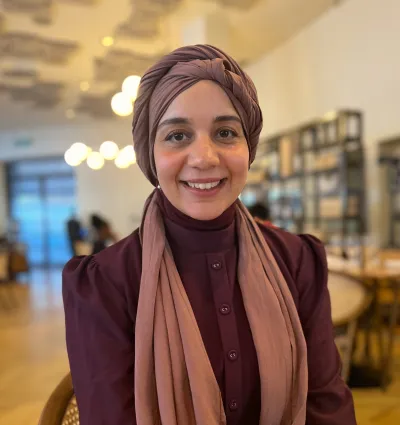
Dr. Islem Rekik
Associate Professor
Imperial College, London, UK
Dr. Islem Rekik is the Director of the Brain And SIgnal Research and Analysis (BASIRA) laboratory and an Associate Professor at Imperial College London. She is the awardee of two prestigious international research fellowships (EU Marie Curie Fellowship & TUBITAK 2232). In 2024, she was the recipient of the prestigious “Tunisian AI Award” from the Tunisian AI Society (𝗧Λ𝗜𝗦), recognizing Top AI Pioneers and was featured in the I-X news as well as the Realites magazine. Together with BASIRA members, she conducted more than 100 cutting-edge research projects cross-pollinating AI and healthcare —with a sharp focus on brain imaging and network neuroscience. UG and PG Students under her supervision received 24 highly competitive academic honors, grants and awards. She is also a co/chair/organizer of more than 34 international first-class conferences/workshops/competitions (e.g., Affordable AI 2021-22, Predictive AI 2018-2025, Machine Learning in Medical Imaging 2021-25, WILL competition 2021-23). She delivered 40+ invited keynotes, talks, seminars and lectures including prestigious international conferences (MICCAI, CVPR, ISBI, Wellcome trust).
She is a member of the organizing committee of MICCAI 2023 (Vancouver), 2024 (Marrakesh) and South-Korea (2025). She will serve as the General Co-Chair of MICCAI 2026 in Abu Dhabi. In addition to her 160+ peer-reviewed publications in top journals including IEEE TPAMI (IF: 20.8) and BMJ (IF: 93), she is a strong advocate of equity, diversity and inclusiveness in AI and research. She is the former President of the Women in MICCAI (WiM), and the co-founder (and now former President) of the international RISE Network to Reinforce Inclusiveness & diverSity and Empower minority researchers in Low-Middle Income Countries (LMIC).

Dr. Anton van der Vegt
Engineer and computer scientist
University of Queensland, Australia
Dr. Anton van der Vegt is an Advance Queensland Industry Research Fellow with extensive industry experience working with UK and Australian healthcare providers. He is an engineer and computer scientist by training and gained his PhD from the University of Queensland in clinical AI information retrieval. Anton works directly with clinicians and healthcare providers to identify opportunities for using AI, to research and develop suitable AI methods for clinical decision support tasks and to evaluate those methods to ensure they are safe, equitable and effective. He also has extensive experience working with clinical data as both a data engineer and data scientist, and with his team, is currently investigating how to identify and mitigate bias in AI, how to incorporate unstructured data (i.e., clinical notes) into risk prediction and how to present AI to clinicians to improve decision making. Anton is passionate about safely implementing AI into clinical practice within Australian hospitals.
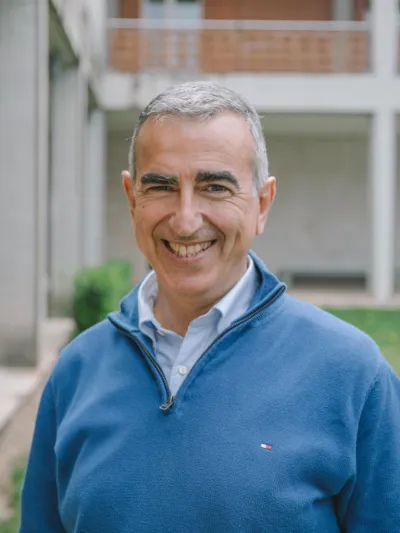
Dr. Oscar Pastor
Full Professor
Polytechnic University of Valencia, Spain
Dr. Oscar Pastor is a full professor, Director of Internationalization and Transference in the Valencian Research Institute of Artificial Intelligence (VRAIN) and Chair of the Research Group on "Software Production Methods” (PROS)” at the Universidad Politécnica de Valencia (Spain). He received his Ph.D. in 1992. He was a researcher at HP Labs, Bristol, UK. Supervisor of up to 41 PhD Thesis, he has published a significant number of research papers (h-index 55; more than 13.000 citations) in conference proceedings, journals and books, received numerous research grants from public institutions and private industry, and been keynote speaker at a diverse ser of relevant conferences and workshops. Former Chair of the ER and CAiSE Steering Committees (SC), and regular member of the SC of conferences as CAiSE, ER, RE, ESEM, REFSQ, ICWE, CIbSE or RCIS, his research activities focus on conceptual modeling, web engineering, requirements engineering, information systems engineering, and model-based software production. He created the object-oriented, formal specification language OASIS and the corresponding software production method OO-METHOD. He led the research and development underlying CARE Technologies that was formed in 1996. CARE Technologies has created an advanced MDA-based Conceptual Model Compiler called IntegraNova, a tool that produces a final software product starting from a conceptual schema that represents system requirements. Winner of the Peter Chen Award on Conceptual Modeling in 2016, member of the Academia Europaea, and ER Fellow, he is currently leading a multidisciplinary project linking Information Systems and Bioinformatics notions, oriented to designing and implementing tools for Conceptual Modeling-based interpretation of the Human Genome information.
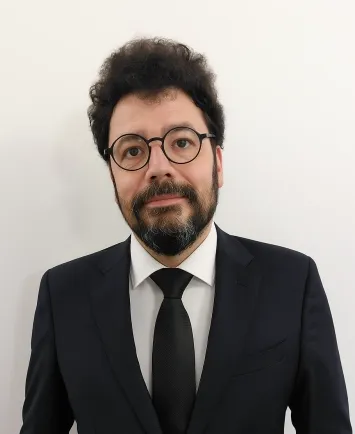
Dr. Pablo Martinez Ruiz del Árbol
Professor
University of Cantabria, Spain
Dr. Pablo Martinez Ruiz del Árbol is a professor of Physics at the Institute of Physics of Cantabria (IFCA), a research institute belonging to the University of Cantabria and the Spanish Research Council. Dr. Martinez is the head of the Department of Modern Physics and Principal Investigator of several projects funded by the Spanish Ministry of Science, the European Commission and also private companies. Dr. Martinez obtained his PhD in 2010, at the University of Cantabria working on the development of muon alignment algorithms for the Compact Muon Experiment at the European Center for Particle Physics (CERN). For this work he received the "Achievement Award" granted by the CMS Collaboration for his outstanding longterm contribution to the experiment. In 2010, Dr. Martinez joined the Swiss Federal Institute of Technology in Zürich (ETHZ) as a postdoc, and started working in searches for new physics with special emphasis on Supersymmetric models. During this period, Dr. Martinez coordinated the "Trigger, MonteCarlo and Interpretations" group and the "Third Generation Searches" group of the CMS collaboration. CMS recognized his work, inviting him to represent the collaboration in some of the most important conferences in the field, or in the prestigious CERN seminar, where he presented the first results of Supersymmetry searches at the unprecedented energy of 13 TeV. In the year 2015, Pablo co-funded the company Muon Tomography Systems S.L. dedicated to the exploitation of Muography in fields such as security, industry and/or civil engineering. In 2017, Dr. Martinez joined the Institute of Physics of Cantabria as a Ramon y Cajal researcher, later as an associate professor and then as a full professor. During this period he led the Spanish contribution to the new MIPS Timing Detector that will be installed at the CMS detector for the LHC upgrade. In particular, Pablo coordinated the software group for 4 years, being in charge of the whole software project. Dr. Martinez has continued contributing to the field of Muography specially in aspects related to artificial intelligence and image reconstruction. He is one of the editors of the official recommendation book of the International Atomic Energy Agency on this technology.
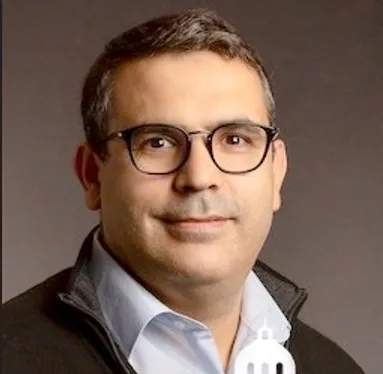
Dr. Tewfik Ziadi
Associate Professor
UDST, Qatar
Dr. Tewfik Ziadi is an Associate Professor of Software Engineering at UDST, previously Associate Professor at Sorbonne Université in Paris for nearly two decades. He is recognized as one of the pioneers of Software Product Line Engineering (SPLE), with more than 70 publications in top journals (e.g., IEEE Transactions on Software Engineering, Information and Software Technology, Journal of Systems and Software) and leading international conferences. He led the MoVe research team at LIP6, coordinated the European REVaMP2 project, and served as co–General Chair and Steering Committee member of the SPLC conference.
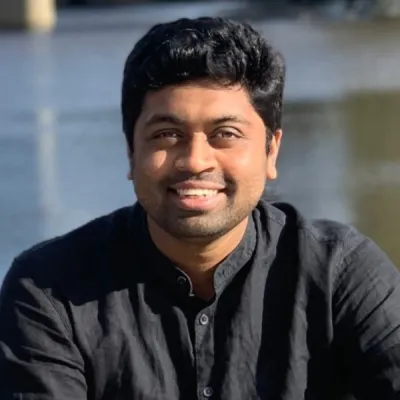
Dr. Moshiur Farazi
Assistant Professor
UDST, Qatar
Dr. Moshiur Farazi is an Assistant Professor of Data Science & AI at the University of Doha for Science and Technology. He specializes in computer vision, multimodal AI, and machine learning, with a PhD from the Australian National University and prior research scientist roles at CSIRO’s Data61. His work spans visual reasoning, medical imaging, zero-shot learning, and AI applications in agriculture, fisheries, and cultural heritage. Dr. Farazi has published in top venues such as NeurIPS, ICLR, EMNLP, BMVC, and leads multidisciplinary collaborations across academia, industry, and government.

